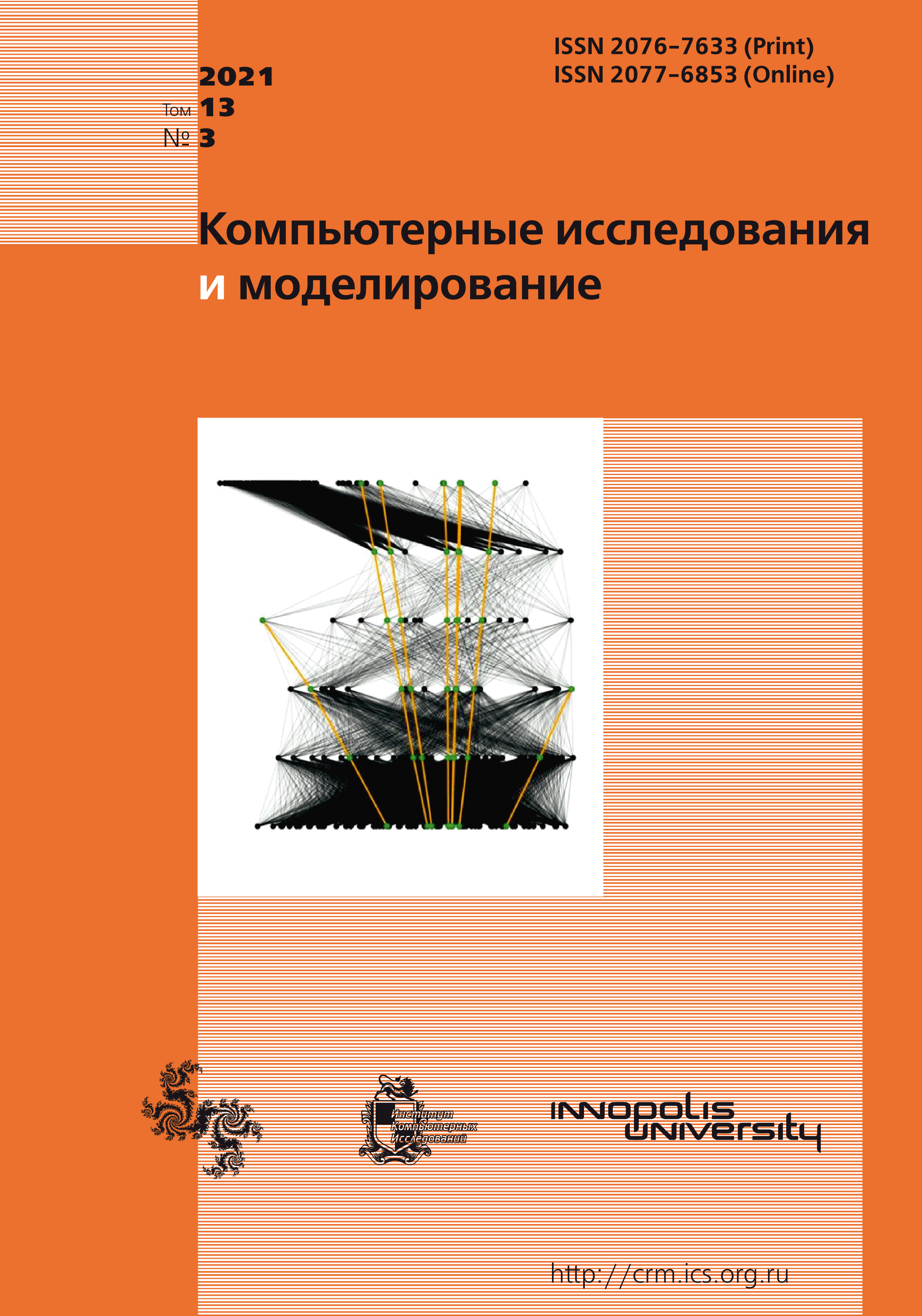All issues
- 2025 Vol. 17
- 2024 Vol. 16
- 2023 Vol. 15
- 2022 Vol. 14
- 2021 Vol. 13
- 2020 Vol. 12
- 2019 Vol. 11
- 2018 Vol. 10
- 2017 Vol. 9
- 2016 Vol. 8
- 2015 Vol. 7
- 2014 Vol. 6
- 2013 Vol. 5
- 2012 Vol. 4
- 2011 Vol. 3
- 2010 Vol. 2
- 2009 Vol. 1
Variational principle for shape memory solids under variable external forces and temperatures
 pdf (414K)
pdf (414K)
The quasistatic deformation problem for shape memory alloys is reviewed within the phenomenological mechanics of solids without microphysics analysis. The phenomenological approach is based on comparison of two material deformation diagrams. The first diagram corresponds to the active proportional loading when the alloy behaves as an ideal elastoplastic material; the residual strain is observed after unloading. The second diagram is relevant to the case when the deformed sample is heated to a certain temperature for each alloy. The initial shape is restored: the reverse distortion matches deformations on the first diagram, except for the sign. Because the first step of distortion can be described with the variational principle, for which the existence of the generalized solutions is proved under arbitrary loading, it becomes clear how to explain the reverse distortion within the slightly modified theory of plasticity. The simply connected surface of loading needs to be replaced with the doubly connected one, and the variational principle needs to be updated with two laws of thermodynamics and the principle of orthogonality for thermodynamic forces and streams. In this case it is not difficult to prove the existence of solutions either. The successful application of the theory of plasticity under the constant temperature causes the need to obtain a similar result for a more general case of variable external forces and temperatures. The paper studies the ideal elastoplastic von Mises model at linear strain rates. Taking into account hardening and arbitrary loading surface does not cause any additional difficulties.
The extended variational principle of the Reissner type is defined. Together with the laws of thermal plasticity it enables to prove the existence of the generalized solutions for three-dimensional bodies made of shape memory materials. The main issue to resolve is a challenge to choose a functional space for the rates and deformations of the continuum points. The space of bounded deformation, which is the main instrument of the mathematical theory of plasticity, serves this purpose in the paper. The proving process shows that the choice of the functional spaces used in the paper is not the only one. The study of other possible problem settings for the extended variational principle and search for regularity of generalized solutions seem an interesting challenge for future research.
Copyright © 2021 Grachev V.A., Nayshtut Yu.S.
Indexed in Scopus
Full-text version of the journal is also available on the web site of the scientific electronic library eLIBRARY.RU
The journal is included in the Russian Science Citation Index
The journal is included in the RSCI
International Interdisciplinary Conference "Mathematics. Computing. Education"






